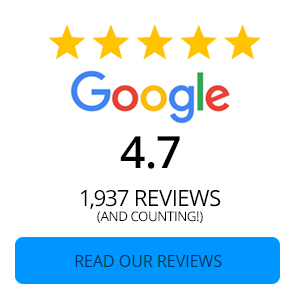Last week, we talked about how to save the most money at the dealership when purchasing a new car. This week, we're focusing on how NOT to get scammed when selling a car. Thanks to Cars.com, we have some car-selling scam scenarios listed here for you to AVOID!
Many people have turned to the internet when selling cars. After all, it is convenient, and you can reach lots of buyers! But, along with the number of consumers conducting transactions online, internet fraud has increased during the past several years. Big-ticket transactions are a primary target, but that shouldn't discourage you from selling your car on your own, online. Go for it, but be cautious and educate yourself about potential scams.
Cashier's Check Scams
In a typical scenario, a buyer - who usually inquires from overseas - arranges to pay for the car with a cashier's check or certified check in an amount that's MORE than the vehicle's purchase price. The buyer justifies this by saying a previous sale fell through or the extra money is needed to pay for shipping expenses or customs fees. Note that the initial-and even, perhaps, all subsequent-contact from this type of buyer is via text message or email, with excuses provided for a lack of phone communication.
The buyer then asks the seller to wire the difference in what he paid and what you asked either to him or to the shipping company to cover expenses. Or a buyer will send a cashier's check as a down payment, then decide to back out of the deal and ask for the money back.
When asked to wire money, just say no. It's never a good idea to wire money to someone you don't know because it's an untraceable transaction. Stop negotiating with anyone who proposes this kind of bargain.
Third-Party Transaction Services
PayPal and Google Wallet are examples of legitimate third-party transaction service providers. However, false representations of these companies' products are often used as a cover to commit fraud. One common scenario is for a fraudulent buyer to request purchase of the vehicle without ever seeing it, claiming it is "priced favorably." Fraudulent buyers typically confirm the asking price, ask for photographs, and ask whether there have been any repairs to the vehicle. Upon the seller's response, the fraudulent buyer then tells the seller that a particular third-party service is the most secure way to conduct online transactions and asks for the seller's third-party service account details.
At this point, the seller will often, as with the Cashier's Check Scam, explain that payment has been arranged in excess of the selling price and instructs the seller to return the overpayment via Western Union, MoneyGram, or another money transfer solution. Unfortunately, the seller does not learn that the PayPal or other third-party transaction was not real until after the successful money transfer of the overage.
Be sure to verify the identity of the buyer as well as the payment method, before initiating a transaction. Always exercise caution when a buyer wishes to purchase your vehicle without seeing it or negotiating the price.

